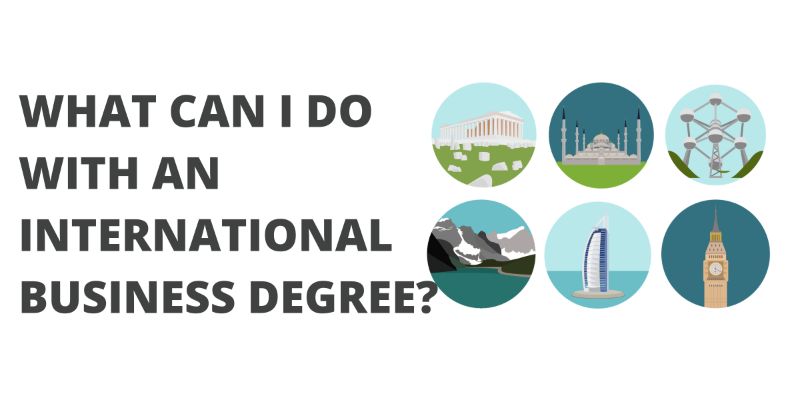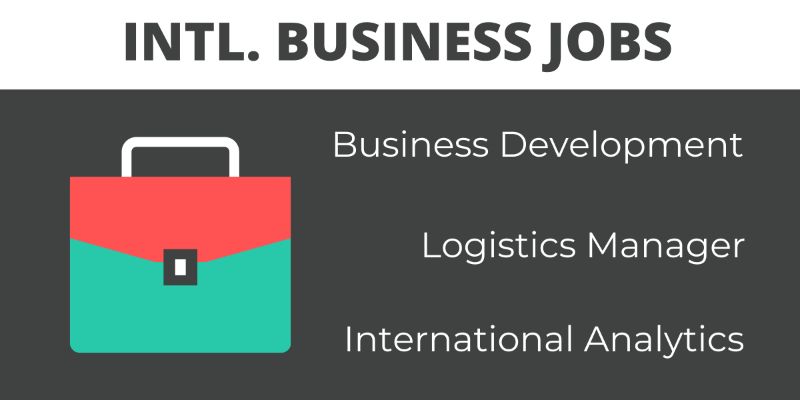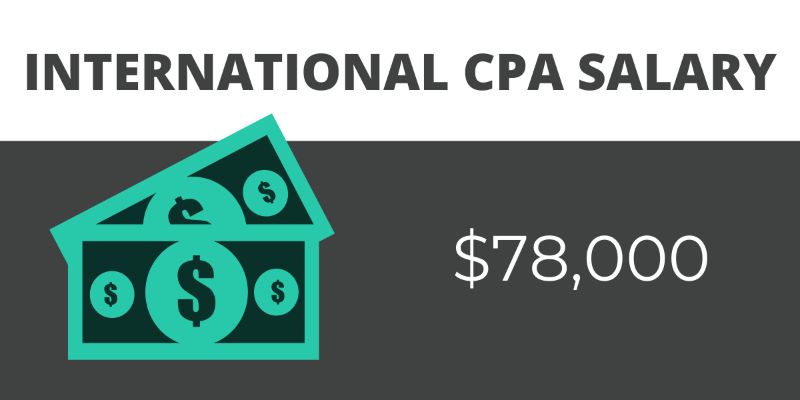“The nature of the global business environment guarantees that no matter how hard we work to create a stable and healthy organization, our organization will continue to experience dramatic changes far beyond our control.” -Margaret J. Wheatley
The world is getting smaller, and global business is getting bigger. The device on which you’re viewing this article right now is the result of from raw materials, parts, labor, designs, and technology sourced from multiple countries and continents. Each of these is shaped by the ever-changing resources, regulations, values, and economies of its place of origin. Without experts establishing and overseeing global sourcing, exchange, and collaboration, these complicated chains can easily become disastrously inefficient, or fall apart altogether. International business professionals make today’s networks of global business possible.

If you have both a big-picture mindset and a dedication to details, interest in both global perspectives and local issues, skills in both analysis and communication, you may be cut out for a career in international business. By its nature, the work of international business requires knowledge in many domains, such as economics, management, law, and language. Those few who have aptitude in these different spheres of the business world would do well to pursue an international business degree. With the right training and credentials, international business professionals have exciting, lucrative, m and in-demand jobs ahead of them.
Featured Programs

But the world of international business is anything but straightforward. Before applying to an international business degree program, you’ll want a solid understanding of the professional and educational landscape. That will mean learning about how international business works, what degrees and experience are required, what jobs are available, and what employers look for in an international business job candidate. You should also consider and weigh the pros and cons of an international business degree before diving in. This professional niche is not for everyone, after all. But if you have the academic interests, and if you fit the professional profile, you may find that an international business degree is the launchpad for a very fulfilling career.
Jump To:
- What is International Business?
- What is an International Business Degree?
- What Types of International Business Degrees are Available?
- What Classes Will I take for an International Business Degree?
- What Jobs Can I Get with an International Business Degree?
- What is the Job Market for International Business Degrees?
What is International Business?
International business is defined as the “trade of goods, services, technology, and capital across national borders and at a global or transnational scale.” International business involves transactions of goods and services across borders between two (or more) nations. It can apply to the manufacture and exchange of physical goods or services like banking, finance, insurance, and construction.
Much of international business involves multinational corporations (MNCs). MNCs are also known as international, stateless, or transnational corporate organizations. They have offices, factories, facilities, and assets in multiple countries, while conducting their operations at a centralized home base in a single country. Multinational corporations are big, even massive, and their budgets are sometimes larger than the entire gross domestic product of a small country. 3M, Adidas, ExxonMobil, Microsoft, Boeing, and Starbucks are examples of multinational corporations.

In today’s globally connected marketplace, even independent domestic businesses have international elements. These may include supply chains that cross borders and staff recruited internationally. Even a mom and pop retail shop may import wholesale goods from abroad, hire laborers on temporary visas, outsource marketing to contractors abroad, and sell their products to international customers. This global integration means that international business skills have applications outside of foreign and multinational corporate business settings.
Whatever the organizational setting, international business means coordinating material and human resources from multiple nations towards achieving a business’ mission. Many of the factors that affect business vary by country and region. These include:
- language
- business culture
- customs and cultural norms
- education systems
- legal systems
- politics
- economic policy
- accounting standards
- labor standards
- standards of living
- environmental laws
- climate and setting
- foreign-exchange markets
- tariffs, import and export laws
- trade agreements
To be successful, international business must closely follow the customs, conventions, and regulations that apply to business in each environment, as well as the laws that govern international commerce. This, of course, requires a great deal of knowledge, expertise, and adaptability. Navigating these significant regional differences for the purposes of business is the job of international business professionals.
What is an International Business Degree?
Sometimes called a “global business degree,” an international business degree is an academic degree that focuses on international business activities and markets. All forms of commercial transactions that take place across international borders fall under the scope of an international business degree, from starting corporate branches abroad to business culture in foreign countries. But at the most basic level, an international business degree is a degree in core business principles and skills that also incorporates studies in international production, trade, and marketing. As an international business major, you’ll learn first and foremost how to conduct business, then study how to conduct business in markets all over the world. International Business Degrees are offered through colleges, universities, and business schools, and are available at the undergraduate and graduate level.

Business degrees all cover the fundamentals of business, and international business degrees are no exception. You can expect to study topics such as:
- Organizational leadership
- Resource management
- Business communication
- Strategic planning
- Applied data analysis
- Financial management
- Business software and technology
- Business law
- Business ethics
An international business degree program builds on these business fundamentals with subjects specifically related to foreign and global trade issues. In an international business major, students also immerse themselves in topics such as:
- multinational organizations’ structure and strategic plans
- foreign business’ practices and conventions
- trends in international markets, including emerging markets
- international business communication, including foreign language
What Types of International Business Degrees Are There?

The term “international business degree” is often used to refer to two different (but related) types of degrees: a business degree with a concentration on international commerce, and a business degree that is earned at a business school in a foreign country. The interchangeable use of this term can be the source of some confusion. However, as we will discuss, there is significant overlap between these two forms of international business degree, and both types have excellent job prospects.
In the US, many schools offer business degrees that include an area of academic emphasis, which is determined by a student’s choice of electives. Examples of business concentrations can include marketing, human resource management, and supply chain management. International business, or global business, is one such concentration that is found at a growing number of US colleges and business schools. This concentration is growing in relevance, and in popularity, as the business world becomes ever more globalized.
The other type of international business degree is a conventional business degree, usually, an MBA, which is earned abroad. The US has long been considered the world leader in business education, and students have come from around the world to pursue business degrees in the US, particularly in some of the nation’s top-ranked MBA degree programs. But data gathered by the Graduate Management Admission Council reveals that this historical trend has been reversing over the past few years. For the past five years, an ever-higher percentage of business school applicants are pursuing degrees at international business schools.
As a recent article in Forbes has noted, there are two main factors driving the trend towards this type of international business degree: the cost of degrees and business globalization. In particular, business degree programs in the United Kingdom, India, China, and Canada are seeing an uptick in applicants who are US natives.
International business degrees tend to be shorter than US-based business programs. There are a number of outstanding accelerated MBA programs based in the USA, most domestic business schools still require two years of coursework for an MBA. International MBAs usually take 16 months or less. An international MBA is also typically far less expensive than business degrees from US-based schools, particularly top-tier programs. Degree seekers who want to take on less student debt while completing their MBA quickly should consider pursuing an international business degree.
Featured Programs

The other driving force behind the trend towards international business degrees is globalization. Job applicants who have a business degree earned abroad have firsthand understanding of another country, including its language, culture, and business conventions. In many situations, this will give them a leg up over those without this experience. Moreover, multinational and multicultural thinking is key for today’s companies to succeed. Living abroad brings students a global perspective, which they can then apply to all their business affairs.
International business degrees also differ by degree level. At the undergraduate level, you can earn a bachelor’s degree with a major or minor in international business. At the graduate level, you can earn a master’s or, more commonly, MBA in international business. A PhD in international business is also possible, though not common. Since business is primarily an applied field, rather than an academic discipline, you won’t usually need a PhD if you have your sights set on a career as a professor of international business. For professors of international business, a graduate degree and extensive work experience are more common.
Some schools also offer a dual degree in international business. Such programs allow students to earn both an undergraduate and graduate degree in international business in five years through targeted coursework. This is significantly shorter, and therefore cheaper, than the six years it typically takes to earn both degrees separately.
What Classes Will I take for an International Business Degree?
Training for a career in international business requires a multidisciplinary curriculum. Every school has its own approach to teaching business skills, as well as partnerships with public and private organizations where students can get supervised experience. As a result, an education in international business at one institution can look very different from a degree in international business from another school. If you’re pursuing an international business degree with a particular industry or region of the world in mind, you’ll want to be sure a prospective school offers classes in your area of interest.
Across all international business degree programs, you’ll find that training in thew principles of commerce comes before coursework in the international major. A typical business degree curriculum can include course titles like:
- Foundations of Financial Accounting
- Operations Management
- Foundations of Managerial Accounting
- Principles of Microeconomics
- Principles of Macroeconomics`
- Statistics for Business and Economics
- Applied Regression Analysis
- Prescriptive Business Analytics
- Information Systems
- Strategic Management
- Fundamentals of Marketing
Once you have a solid understanding of the foundations of business, economics, and finance, you’ll enroll in classes that are related to your international business major. These will typically include titles such as:
- Foundations of Global Business
- International Finance
- Comparative Economic Systems
- International Economics
- International Business Ethics
- International Business Law
- International Comparative Management
- Global Marketing
- Intercultural Communication
- International Studies
- Foreign Language
It’s worth pausing to consider the importance of foreign language and international studies coursework. Students will be able to choose the language and region they want to study for their degree, and have a set number of credits allocated to this area. Most schools require students to demonstrate proficiency in a foreign language in order to be awarded a degree in international business.
International business students need to select classes in a language that will have a lot of applications for global commerce. This usually means studying a language that’s spoken in a region which is a strong trading partner with the US, or that has a rapidly-growing economy. The most popular foreign languages for international business students include:
- Chinese
- Russian
- Spanish
- French
- German
- Japanese
- Koeran
- Spanish
- Arabic

On-the-job learning is an important part of earning a degree in business, and international business is no exception. As with any business degree, you’ll learn more and have a stronger resume if you have had a supervised internship or practicum at a job site. This experience, and your assignments based on it, will make up some of your credits towards an international business degree. Schools based in the US usually send international business students to sites abroad at the foreign branches of multinational countries. This allows them to apply the skills they have learned in classes to real-world problems and absorb the culture and workplace norms of a foreign business location.
What Jobs Can I Get with a Degree in International Business?
There are a wide range of jobs open to graduates with a business degree. Those with an international business degree have both range of job titles and a range of locations open to them. Often, they preform the role of bridge between operations in two or more locations of a multinational corporation. They may also be employed by governmental agencies or international commercial and investment banks. Institutions like the World Bank, Amnesty International, departments of Commerce, the Export-Import Bank, the Council on Foreign Relations, Office of Foreign Service, and the International Finance Corporation all employ international business majors.
Domestically and abroad, some of the most common jobs titles held by graduates with an international business degree are:
- Business development manager
- Supply chain manager
- Foreign exchange trader
- Foreign service officer
- Human resources officer
- Financial analyst
- Stockbroker
- Marketing executive
- Trade specialist
- Import/export coordinator
- External auditor
- Financial trader
What is the Job Market for International Business Degrees?
As we’ve seen, the range of jobs open to graduates with a degree in international business is very wide. As a result, it can be hard to pin down specifics like salary and job growth. Nevertheless, a survey of the field suggests that growth and salaries in international business are robust.
Some of the most common jobs for professionals who hold an international business degree are International Financial Management, Financial Analyst, and International Marketing Manager. These jobs command high salaries, ranging from $85,660 to $134,290. It’s worth noting that salary will largely depend on experience and degree level. Jobs like Financial Analyst and International Marketing Manager usually go to those with an advanced degree like an MBA in international business. According to Payscale, the average salary associated with a bachelor’s degree in international business is $88,500.
Working for a large, multinational corporation, as most international business majors do, usually has lots of perks. Payscale estimates that the median salary for international business managers is $79,000, with those in the top 10th percentile earning $145,000 or more. But corporate benefits make this an even better position. Payscale has determined that the average international business manager receives $6,037 in bonuses and $9,250 in profit sharing.

Job demand can also be difficult to nail down thanks to the variety of jobs in international business, but the overall outlook is very promising. According to the Bureau of Labor Statistics, jobs throughout the field of business and financial operations occupations is projected to grow faster than the national average for all occupations. The bureau projects that positions in this sector will increase by 5 percent between 2019 and 2029, adding about 476,200 new jobs.
Taking this rate of growth in business as the baseline, it’s likely that the rate of job growth will be higher for those with specific training in international business. Businesses are continuing to trend towards greater and greater globalization, and it follows that international markets and operations will occupy much of this growth.
Another factor to consider is job location. Are you interested in living abroad and willing to relocate? If you are open to working and living outside the US, your job prospects in international business will be even better. According to the NASDAQ, the world’s fastest-growing economies include far-flung destinations like Egypt, Bangladesh, Guyana, and China. There’s likely to be a strong demand for international business majors who are interested in living and working in countries that are developing quickly and experiencing massive economic growth.
Keep in mind, of course, that standards of living, and cost of living, will vary greatly by location. If you work in Tokyo or London, you can expect to live in a small residence and commute by public transit. If you work in Mumbai or Rio de Janeiro, on the other hand, your salary will likely afford you a more high-end lifestyle. The cost of basics like healthcare, education, and housing vary wildly by region, and should be weighed if you’re considering a business career abroad.
Ultimately, a degree in international business can take you almost anywhere, and land you a job in almost any industry. If you have analytic skills, strong communication, and a global mindset, an international business degree may be right for you.
Further Reading
- The Top 10 Best International Business Schools
- The 10 Best Locations For International Business
- International MBAs Vs Domestic MBAs
- What Makes an International Destination Business Friendly?
- What Can I Do with a Bachelor’s Degree in Business?
- 10 Best Online Bachelors in Management Degree Programs
- What Can I Do with a Business Analytics Bachelor’s Degree?
- Is an MBA Right for Someone Without a Business Degree?
- How To Choose An MBA Specialization
- Career Outlook For MBA’s
- The 15 Best One-Year MBAs Online
- How Much Do Business Majors Make?
- The Top 10 Online Business Management Degree Programs
Carrie Morris
Author
Warren Dahl
Editor-in-Chief
